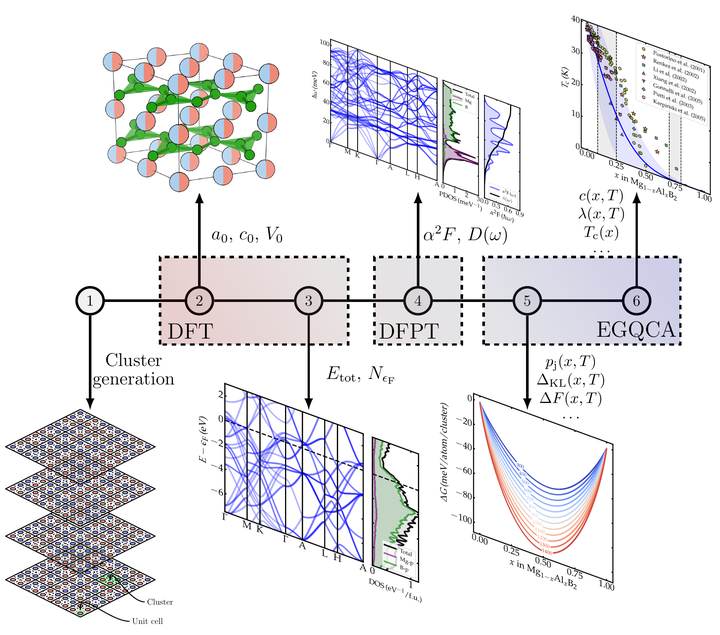Abstract
Motivated by the recent report of room-temperature superconductivity at near-ambient pressure in N-doped lutetium hydride, we performed a comprehensive, detailed study of the phase diagram of the Lu–N–H system, looking for superconducting phases. We combined ab initio crystal structure prediction with ephemeral data-derived interatomic potentials to sample over 200,000 different structures. Out of the more than 150 structures predicted to be metastable within ~50 meV from the convex hull we identify 52 viable candidates for conventional superconductivity, for which we computed their superconducting properties from Density Functional Perturbation Theory. Although for some of these structures we do predict a finite superconducting Tc, none is even remotely compatible with room-temperature superconductivity as reported by Dasenbrock et al. Our work joins the broader community effort that has followed the report of near-ambient superconductivity, confirming beyond reasonable doubt that no conventional mechanism can explain the reported Tc in Lu–N–H.
